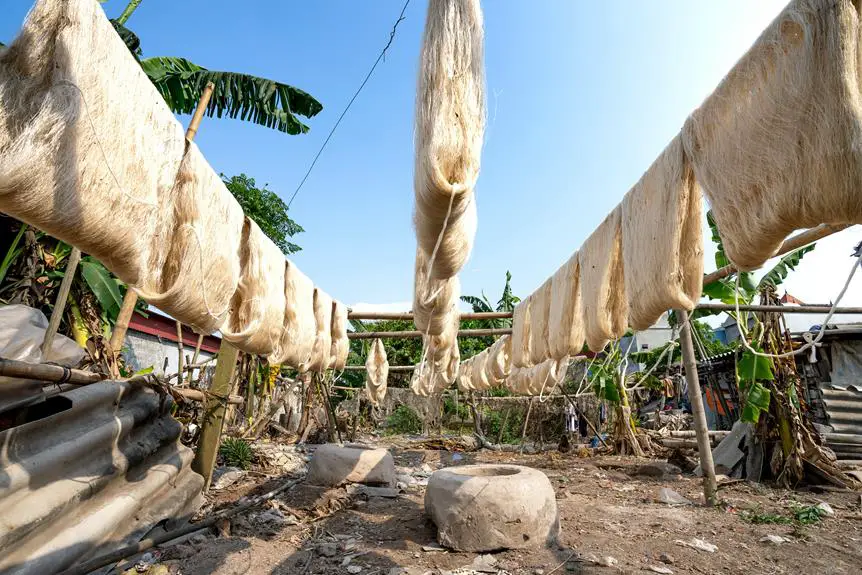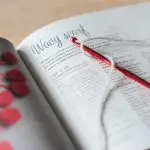If you're delving into the world of fabric crafts, finding the finest clear epoxy is essential for achieving flawless finishes.
With a plethora of products on the market, selecting the right one can seem like a daunting task. However, fear not, as we unravel the mystery and provide you with a comprehensive guide to determine which clear epoxy is best for fabric crafts.
From understanding the basics to comparing the top brands, we'll equip you with the knowledge and insights needed to make an informed decision.
So, let's embark on this epoxy exploration and elevate your fabric crafting endeavors to new heights.
Key Takeaways
- Clear epoxy is essential for flawless finishes in fabric crafts.
- Fabric compatibility should be tested when working with clear epoxy.
- Consider fabric type and project requirements when choosing an epoxy brand.
- Proper application techniques and careful monitoring of the curing process are important for professional results.
Epoxy Basics: Understanding Clear Epoxy for Fabric Crafts
Understanding clear epoxy for fabric crafts involves choosing the right product and mastering its application.
Epoxy resin is a versatile material commonly used for various crafts, including fabric projects. When working with clear epoxy for fabric, it's crucial to consider fabric compatibility. Not all fabrics are suitable for use with epoxy, and understanding which fabrics work best can save you from potential mishaps.
Certain natural and synthetic fabrics, such as cotton, denim, and polyester, are generally compatible with epoxy. However, it's essential to test a small area of the fabric with the epoxy to ensure it adheres well and doesn't cause any undesirable reactions.
Additionally, understanding the specific characteristics of the epoxy, such as its curing time and viscosity, is paramount when applying it to fabric. By mastering the application process, including mixing the epoxy correctly and applying it evenly, you can achieve professional-looking results on your fabric crafts.
Understanding epoxy and fabric compatibility is fundamental for ensuring successful and durable outcomes in your fabric projects.
Top Considerations When Choosing Clear Epoxy for Fabric Crafts
When selecting clear epoxy for fabric crafts, consider both the fabric's compatibility with the epoxy and the epoxy's suitability for the fabric. Choosing the right epoxy is crucial for the success of your fabric craft project.
Start by examining the type of fabric you're working with. Natural fabrics like cotton and silk may require a different type of epoxy compared to synthetic fabrics such as polyester or nylon. Some epoxies may work better with certain fabric types due to their flexibility and adhesion properties.
Assess the intended use of the fabric craft as well. For example, if the fabric will be subject to frequent bending or stretching, a flexible epoxy would be essential.
Additionally, consider the transparency and color of the epoxy. Clear epoxies are ideal for maintaining the fabric's original appearance, while colored epoxies can add a unique touch to your craft.
Comparison of the Best Clear Epoxy Brands for Fabric Crafts
To thoroughly compare the best clear epoxy brands for fabric crafts, assess their compatibility with your specific fabric type and intended use. When comparing epoxy brands for fabric crafts, epoxy durability and fabric compatibility are crucial factors to consider.
Epoxy durability refers to the ability of the epoxy to withstand wear and tear over time, ensuring that your fabric craft maintains its quality and appearance. Look for epoxy brands that are specifically formulated for fabric use and offer strong adhesion to a variety of fabrics, including cotton, polyester, and silk. Consider the intended use of your fabric craft, whether it's for clothing, accessories, or home decor, and choose an epoxy brand that aligns with your project's requirements.
Some of the best clear epoxy brands for fabric crafts include E6000 Fabri-Fuse, Aleene's Clear Gel Tacky Glue, and Mod Podge Super Gloss. Each brand offers unique features that cater to different fabric types and project needs.
E6000 Fabri-Fuse is known for its exceptional durability and strong bond with fabrics, making it suitable for heavy-duty fabric crafts. Aleene's Clear Gel Tacky Glue provides a flexible hold, ideal for delicate fabrics and intricate designs. Mod Podge Super Gloss offers a high-gloss finish, perfect for adding a professional touch to fabric crafts.
Consider these factors when choosing the best clear epoxy for your fabric crafts.
Application Techniques: Using Clear Epoxy in Fabric Crafts
When applying clear epoxy in fabric crafts, ensure the fabric surface is clean and free of any dust or debris to promote strong adhesion. Start by prepping the fabric, then mix the clear epoxy according to the manufacturer's instructions.
Using a small brush or foam applicator, carefully apply the epoxy to the fabric in thin, even layers. Avoid using too much epoxy to prevent it from seeping through the fabric.
Once applied, use a heat gun or hairdryer to remove any air bubbles and help the epoxy penetrate the fabric fibers. Allow the epoxy to cure for the recommended time in a well-ventilated area. Remember to handle the fabric carefully during the curing process to avoid any wrinkles or distortions in the epoxy sealant.
Additionally, consider using a fabric sealant spray after the epoxy has cured to provide extra protection and enhance the adhesion of the epoxy to the fabric. Following these application techniques will help ensure a successful and durable clear epoxy finish on your fabric crafts.
Tips for Achieving Professional Results With Clear Epoxy in Fabric Crafts
For achieving professional results with clear epoxy in fabric crafts, start by thoroughly reading and following the manufacturer's instructions for the specific epoxy product you're using. Achieving durability in your fabric crafts requires careful preparation. Ensure that the fabric is clean, dry, and free from any dust or lint that could become trapped in the epoxy. Additionally, consider sealing the fabric with a thin layer of clear glue or sealant before applying the epoxy to prevent discoloration or bleeding of dyes from the fabric.
When working with clear epoxy, it's essential to mix the resin and hardener thoroughly, following the recommended ratios. Inadequate mixing can result in a tacky or soft finish, compromising the durability of the epoxy. Furthermore, apply the epoxy in thin, even layers to avoid air bubbles and ensure proper adhesion to the fabric. If you're working with delicate fabrics, consider using a brush to apply the epoxy gently.
After applying the epoxy, carefully monitor the curing process to prevent any issues that may impact the final result. By following these tips, you can achieve professional, durable results while avoiding discoloration in your fabric crafts.
Frequently Asked Questions
Can Clear Epoxy Be Used on All Types of Fabric, or Are There Specific Fabrics It Works Best With?
When using clear epoxy on fabric, it's important to choose the best fabrics for the desired outcome. Consider the fabric's texture, weave, and thickness for optimal results. Experiment with different application techniques to find what works best.
How Long Does Clear Epoxy Typically Take to Dry on Fabric, and Are There Any Factors That Can Affect the Drying Time?
Clear epoxy typically takes 24-72 hours to dry on fabric, depending on factors like fabric type and application techniques. Avoid mistakes by carefully following instructions and using proper tools for mistake removal.
Are There Any Safety Precautions or Special Ventilation Requirements When Using Clear Epoxy on Fabric?
When using clear epoxy on fabric, it's crucial to consider safety precautions and ventilation requirements. Protect yourself from chemical exposure, ensure adequate respiratory protection, and work in a well-ventilated area to safely complete your fabric projects.
Can Clear Epoxy Be Used to Waterproof Fabric, or Is It Primarily Used for Adding a Glossy Finish?
Yes, clear epoxy can waterproof fabric and provide a glossy finish. It creates a durable, waterproof seal on fabric surfaces, making it suitable for a variety of fabric crafts and projects.
Are There Any Special Considerations or Techniques for Removing Clear Epoxy From Fabric if a Mistake Is Made During the Application Process?
When removing epoxy from fabric, use a fabric-safe solvent and gently dab the affected area. Avoid rubbing to prevent spreading. For application, test on a small fabric scrap first. Consider fabric porosity and thickness.
- How Does Ring Spun Cotton Affect Garment Fit and Shape Retention? - August 13, 2024
- What Are the Challenges in Producing Ring Spun Cotton? - August 13, 2024
- Is Ring Spun Cotton Suitable for Plus-Size Clothing? - August 13, 2024




